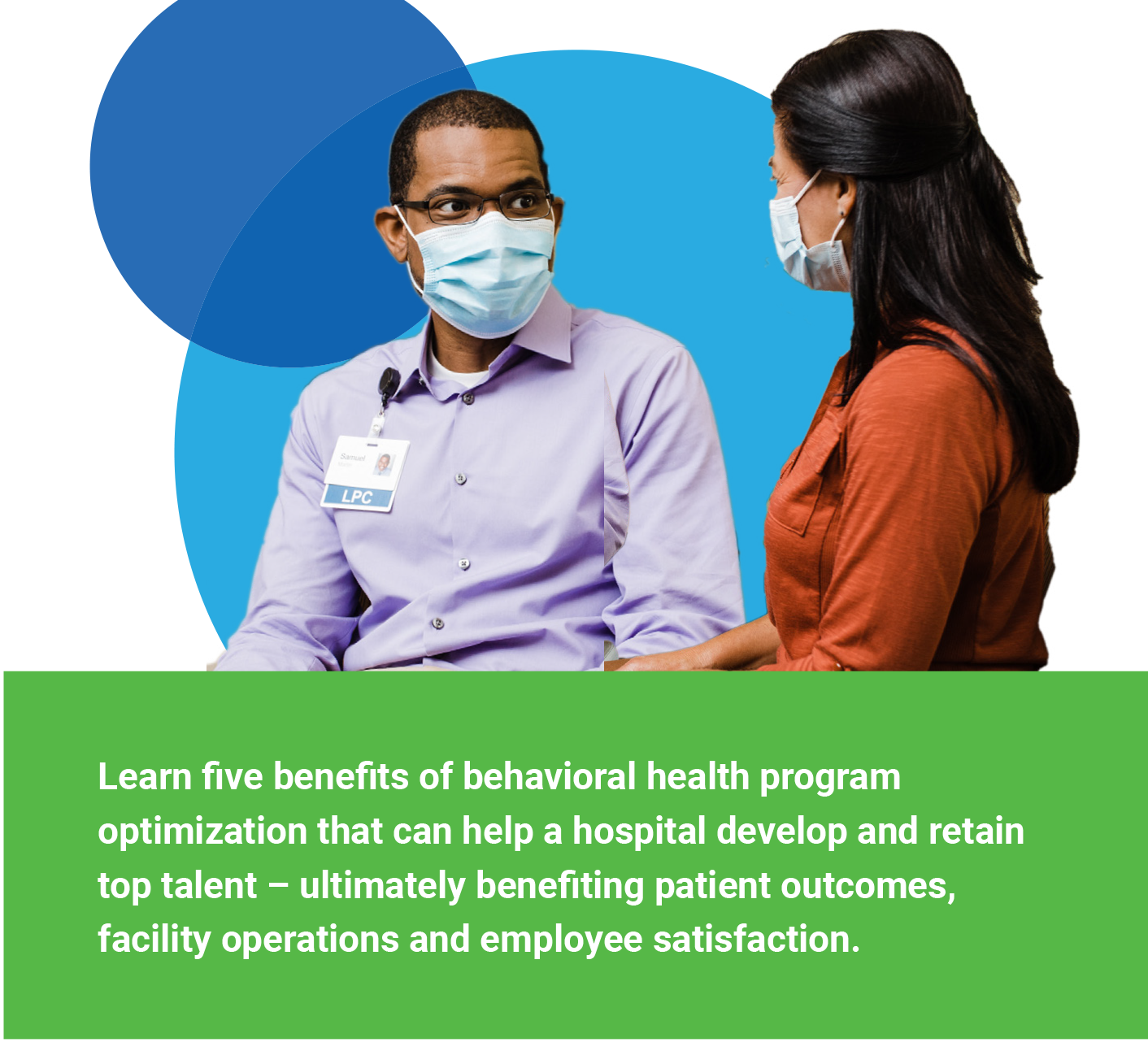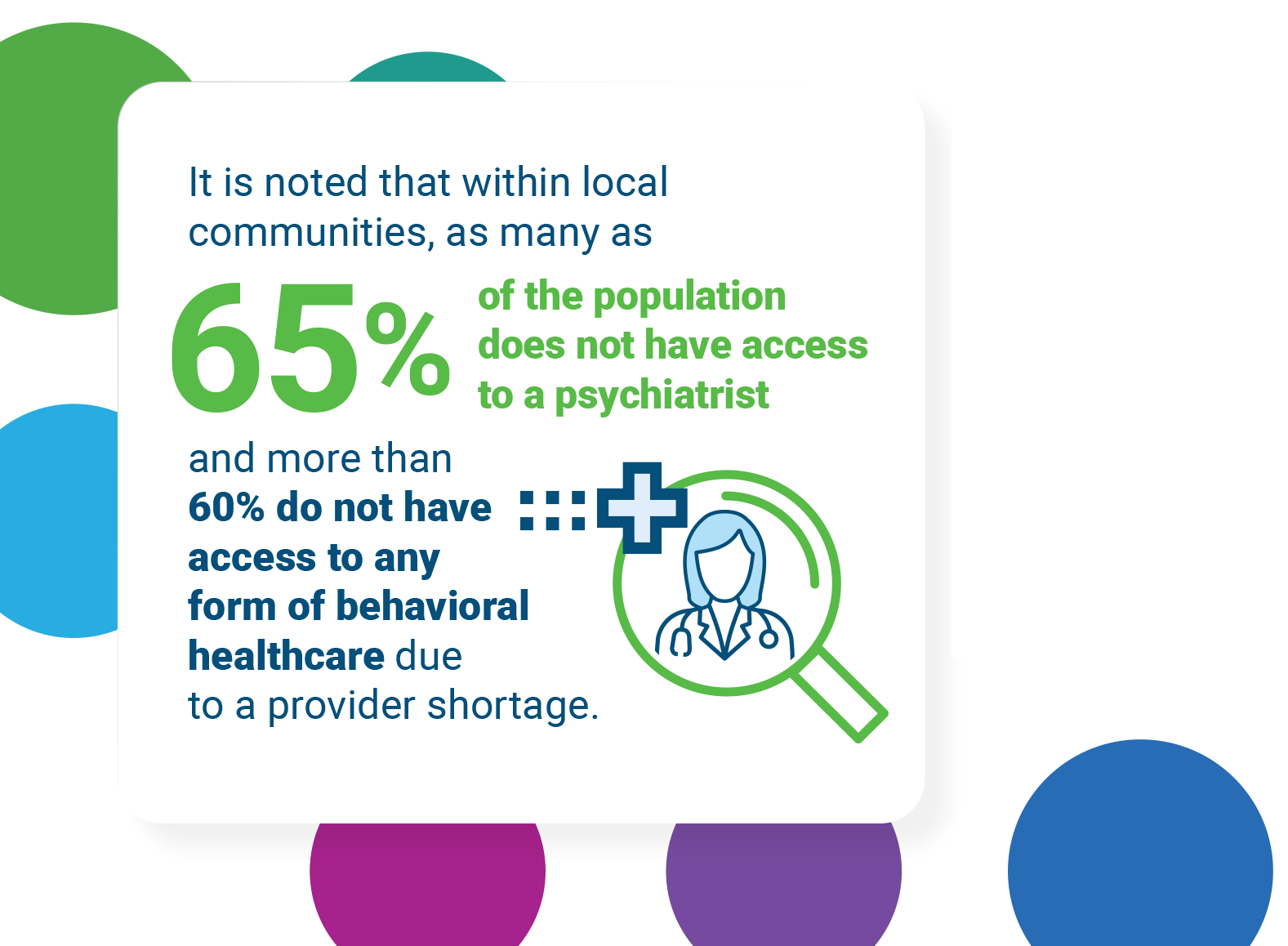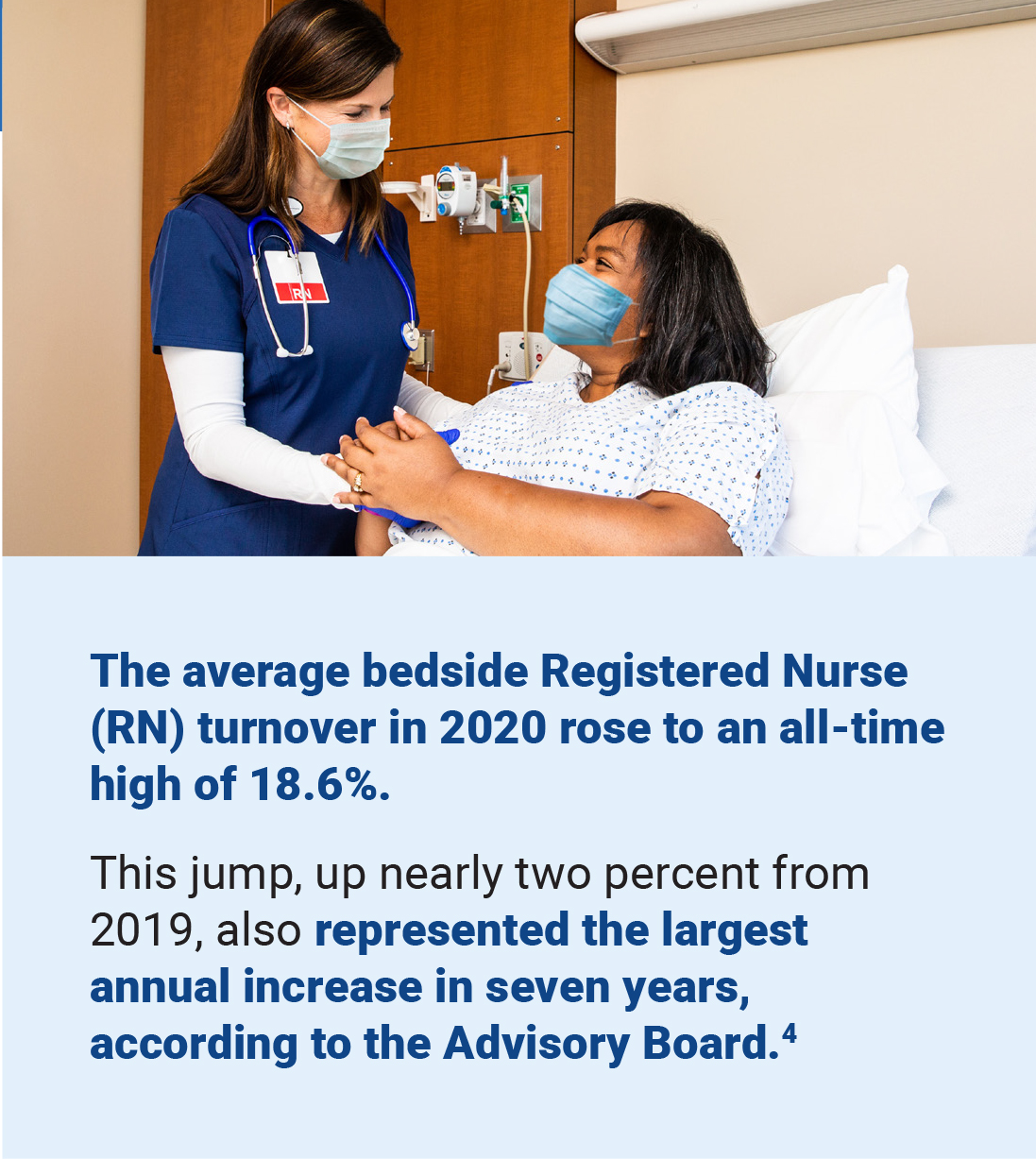Between surges caused by the pandemic, caregiver burnout and the rise of both medically complex and behavioral health patient populations, healthcare staffing has never been more challenging.
While hiring is often the focus to address shortages, it is only a stopgap. A lasting solution can be achieved only by identifying the root cause of challenges around employee engagement, care efficiency and increasing turnover rates.
Development and implementation of operational and clinical strategies play a critical role in helping hospitals recruit and retain top talent. Moreover, hospitals are finding that contract management or a joint-venture partnership can give them greater access to resources and expertise to help their behavioral health program excel within the community it serves.

Strategic Partnerships Can Help Your Hospital:
1. Gain access to a national behavioral health database and resources focused on behavioral health program optimization.
With a rapidly growing medically complex patient population, the demand for resources has never been more intense. Having a team of local and national experts dedicated to the latest behavioral health trends, quality data and best practices enable hospital leadership to focus on their core acute services. It also helps to relieve the burden of implementing and running a behavioral health program.
The combination of both local and national resources allows the hospital to leverage the latest national data, while simultaneously applying the key takeaways at the local level. This ensures a care approach tailored to the community’s specific needs. In addition, staff can be equipped with the latest techniques and resources to help them be more successful in their roles, and ultimately more satisfied in their position.
A qualified behavioral health partner with a strong reputation for delivering exceptional outcomes through state-of-the-art resources and data can help expand behavioral health talent.
2. Identify and recruit specialized behavioral health resources.
 The supply of behavioral health team members is not sufficient to meet the demand for mental health and substance use services in the United States, and this imbalance only worsens in smaller communities.1 An experienced partner will have a team with both local and national reach, focused on recruiting top talent. This enables the hospital to efficiently and effectively locate and hire staff members who match the culture of the hospital and the specific needs of the community.
The supply of behavioral health team members is not sufficient to meet the demand for mental health and substance use services in the United States, and this imbalance only worsens in smaller communities.1 An experienced partner will have a team with both local and national reach, focused on recruiting top talent. This enables the hospital to efficiently and effectively locate and hire staff members who match the culture of the hospital and the specific needs of the community.
Having a fully-staffed behavioral health team also helps patients get to the right care setting, faster. This ultimately relieves overcrowding within the emergency department (ED) – leading to better outcomes, higher levels of patient satisfaction and lower levels of burnout among ED providers.
A strong and resilient behavioral health team is essential when providing high-quality treatment to patients with varying needs. Once an individual is hired, it is critical to support their career path by providing training and educational pathways to not only improve their skillset, but further enhance the hospital’s care delivery and outcomes.
3. Provide best-in-class employee training and continuing education.
Supplying the latest educational resources for employees to excel not only leads to better outcomes, but also helps to improve employee satisfaction and retention. A dedicated behavioral health partner with established programs for continuing education and employee development can help the hospital stand out from other employers.
The University of California – Berkeley states that the positive outcomes resulting from investing in an employee’s career and education include:2
- Increased career satisfaction
- Improved self-confidence and sense of responsibility
- Increased motivation Ability to better attract top talent and retain valued employees
- Greater learning opportunities for the entire organization
4. Live out its mission and values through positive culture.
The mission and values of a hospital are the underlying DNA that brings the entire organization together to serve the community and achieve the best possible outcomes. Hospital team members who align with a company’s mission and values are more likely to enjoy their work experience, resulting in higher productivity levels and engagement. They are also more likely to express loyalty to the company by continuing their employment within the organization long-term.
Research highlights that mission-driven workers are 54 percent more likely to stay for five years at a company, and 30 percent more likely to grow into high performers, than those who arrive at work with only their paycheck as the motivator.3
An experienced provider will respect the hospital’s unique culture and mission, and will partner with the hospital to further that mission in the community.
5. Gain a reputation for excellence.
Top talent wants to work for top organizations. An experienced behavioral health partner brings operational and clinical excellence that can help the program be known throughout the region by both patients and healthcare professionals. The additional resources and best practices also allow for greater efficiency, leading to less burnout and more flexibility – key drivers of employee satisfaction.

Reducing burnout among employees is especially critical. The average bedside Registered Nurse (RN) turnover in 2020 rose to an all-time high of 18.6 percent. This jump, up nearly two percent from 2019, also represented the largest annual increase in seven years, according to the Advisory Board.4 These statistics don’t just pertain to RNs.
Health systems across the nation are seeing shortages due to burnout in a multitude of positions including psychiatrists. It is noted that within local communities, as many as 65 percent of the population do not have access to this kind of specialist and more than 60 percent do not have access to any form of behavioral healthcare due to a provider shortage.5 These shortages create an obstacle when it comes to attracting behavioral health providers, and when combined with a lack of financial incentives, burnout is expected among all hospital staff within the local community.
Similar to the exceptional behavioral healthcare required to aid in successful patient outcomes, potential staff members are now looking for an employer who provides the mental and emotional support needed to help them meet current and future demands of their roles. A partner with access to resources to aid in an employee’s professional growth can help a health system be viewed as an employer of choice within their community.
The benefit of partnership for behavioral health staffing success
To enhance employee engagement and satisfaction, many health systems are looking to contract management and joint-venture partnership. Strategic partnerships can help hospitals optimize their operations as a whole – aiding in superior patient and facility outcomes as well as improved employee satisfaction and retention.
Lifepoint Behavioral Health is a leader in treating patients with mental health and substance use disorders through partnerships that integrate the latest innovative solutions – producing quality care and superior outcomes.
Get in touch
Contact us today to learn how partnership with Lifepoint could benefit your hospital and community.

